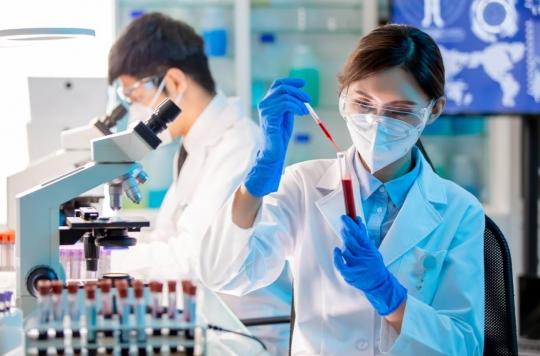American researchers have succeeded in analyzing how the immune response is triggered. They hope these findings will help improve how vaccines work.

- The behavior of cells in the face of a pathogen can predict the immune reaction
- A combination of molecules could increase the effectiveness of vaccines
Immune cells are like soldiers in our body: if they detect the presence of a virus or bacteria, they organize an attack to eliminate it. Their action has long been known to scientists, but the process that allows them to identify dangerous molecules, and to decide on an action against them, remains mysterious. Researchers from the Pritzker School of Molecular Engineering at the University of Chicago have succeeded in deciphering this phenomenon. They explain their discovery in the specialized journal Cell Systems.
Analyze the effects of pathogens on immune cells
All immune cells in the body have receptors: they allow them to recognize molecules associated with pathogens, such as viruses or bacteria. These molecules provide them with data, which allow them to decide if it is necessary to fight them. In this study, the researchers investigated the precise effect of the molecules on the immune system. To do this, they used adjuvants: molecules added to a product, such as a vaccine, which control the immune response by targeting receptors on cells.
In petri dishes, scientists studied the reaction of immune cells, stimulated by adjuvants, to the molecules of pathogens. They found that the effects of the molecule administered alone were not the same when it was combined with another. On the other hand, analyzing the action of one molecule or two made it possible to predict the consequences of a molecular trio on the immune cells. The researchers were thus able to create a model to predict immune reactions.
Results tested on mice
The second stage of the research improved the effectiveness of a cancer immunotherapy treatment in mice. The researchers had modified it by adding a mixture of adjuvants. Tumor growth was divided by 5 to 10 in treated mice, compared to mice that had not received the treatment. The research team wishes to continue its work on adjuvants and perhaps launch a clinical trial on humans one day, to succeed in improving the effectiveness of vaccines.
.














